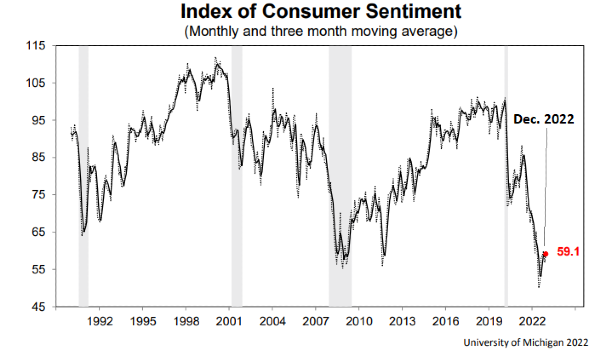Actionable Items for You:
- If you want to set yourself up for success, you have to make SMART goals.
- Specific, Measurable, Achievable, Relevant, and Time-based.
Have you ever set a goal like losing weight, only to give up after a few weeks? We have all been there. You set a goal with the best intentions, but you just can’t seem to follow through. You blame yourself for not being motivated enough or not having enough willpower.
Sometimes, though, the problem is the goal itself. Maybe the steps to achieving your goal were too restrictive, or maybe it wasn’t specific enough.
That’s where we can help. With some simple psychology and planning, we can give you an edge to following through on your goals and set you up to win - and that’s by being SMART. If we are not SMART about our goals, especially our financial goals, we may be setting ourselves up for failure.
What are we talking about? Upgrading your goals to SMART Goals. They are:
- Specific: This means laying out precisely what you want to achieve. E.g., I want to save $30,000 for a downpayment on a house.
- Measurable: You want to determine a unit of measure on how you will track your progress.
- Achievable: To achieve your goals, you'll need to plan action steps to make your goal attainable.
- Relevant: You want to make sure your goals are worthwhile and progress towards your larger ambitions.
- Time-based: You'll also need to create realistic goals based on factors like your income, time, and what you can do.
If you’re wondering what we mean, maybe this will help:
Example of a less-intentioned goal:
“I want to save more money.”
We’ve probably all said this at some point. And going into the New Year, we’ve probably all said it recently. But if you’re serious about doing it, you might be better off tweaking this goal to something like this:
And now a SMART goal example:
“I want to save $1200, adding $200 a month to my savings account.”
See the difference? And write it down! Goals written down are more than 42% more likely to be completed.
If we have a long-term goal that we want to achieve in 5 or more years, it may make sense to break that long-term goal into shorter-term goals to make it easier to measure and achieve. Creating short-term and medium-term with an ultimate long-term goal in mind allows you to check in with your progress and adjust your actions as needed. You may find yourself achieving that long-term goal faster.
New Year / New Start
January is for getting organized - and we’re going to hammer financial organization this month.

Actionable Items for You:
- The first step to your 2023 goal of getting your finances? We have you covered - get all of your documents together.
- We’re going to tackle getting organized this month from a financial perspective. Some topics for the rest of the month are below.
2023 is here! Welcome to the future.
Is one of your goals to get your finances in order? If it’s something you’ve had on the back burner for some time and you want to take the plunge, we’re here to help. It can seem overwhelming to get started - but it doesn’t have to be!
Start by allocating some time each week to getting organized. This can be an hour each Wednesday night, or even a couple of hours before game time on Sunday. Make sure you commit to some time each week and don’t try to tackle it all at once - that’s how you lose momentum.
Next, you can gather all your statements and log into all of your accounts (bear with us - this might be the hardest part in getting organized). You want to gather info for all of your accounts that have any monetary value or info related to your finances, including life insurance, wills, and trusts. Here’s a checklist:
Look for your Assets:
- Bank accounts,
- investments,
- retirement accounts,
- and real estate
Find out your Liabilities:
- Credit cards,
- student loans,
- mortgages,
- and any other debts
Write down your Income:
- Salary,
- gifts,
- investment income,
- business income, etc.
Track your Expenses:
- Credit card and debit card statements,
- bank statements,
- or any other source of spending
If you want a comprehensive list of important financial documents, reach out to us at Freeman Capital today - we can send a list over to you.
In addition, our secure platform allows you to link all of your financial accounts and hold your financial documents in a secure vault if you want to work with us.
As a start, here’s a PDF link to Right Capital - One Stop Access
And watch this video to help stay on top of your financial life.
And voila - all of your documents have now been gathered.























Actionable Items for You:
Have you ever set a goal like losing weight, only to give up after a few weeks? We have all been there. You set a goal with the best intentions, but you just can’t seem to follow through. You blame yourself for not being motivated enough or not having enough willpower.
Sometimes, though, the problem is the goal itself. Maybe the steps to achieving your goal were too restrictive, or maybe it wasn’t specific enough.
That’s where we can help. With some simple psychology and planning, we can give you an edge to following through on your goals and set you up to win - and that’s by being SMART. If we are not SMART about our goals, especially our financial goals, we may be setting ourselves up for failure.
What are we talking about? Upgrading your goals to SMART Goals. They are:
If you’re wondering what we mean, maybe this will help:
Example of a less-intentioned goal:
“I want to save more money.” We’ve probably all said this at some point. And going into the New Year, we’ve probably all said it recently. But if you’re serious about doing it, you might be better off tweaking this goal to something like this:
And now a SMART goal example:
“I want to save $1200, adding $200 a month to my savings account.” See the difference? And write it down! Goals written down are more than 42% more likely to be completed. If we have a long-term goal that we want to achieve in 5 or more years, it may make sense to break that long-term goal into shorter-term goals to make it easier to measure and achieve. Creating short-term and medium-term with an ultimate long-term goal in mind allows you to check in with your progress and adjust your actions as needed. You may find yourself achieving that long-term goal faster.
New Year / New Start
January is for getting organized - and we’re going to hammer financial organization this month.
Actionable Items for You:
2023 is here! Welcome to the future.
Is one of your goals to get your finances in order? If it’s something you’ve had on the back burner for some time and you want to take the plunge, we’re here to help. It can seem overwhelming to get started - but it doesn’t have to be! Start by allocating some time each week to getting organized. This can be an hour each Wednesday night, or even a couple of hours before game time on Sunday. Make sure you commit to some time each week and don’t try to tackle it all at once - that’s how you lose momentum. Next, you can gather all your statements and log into all of your accounts (bear with us - this might be the hardest part in getting organized). You want to gather info for all of your accounts that have any monetary value or info related to your finances, including life insurance, wills, and trusts. Here’s a checklist:
Look for your Assets:
Find out your Liabilities:
Write down your Income:
Track your Expenses:
If you want a comprehensive list of important financial documents, reach out to us at Freeman Capital today - we can send a list over to you.
In addition, our secure platform allows you to link all of your financial accounts and hold your financial documents in a secure vault if you want to work with us. As a start, here’s a PDF link to Right Capital - One Stop Access And watch this video to help stay on top of your financial life. And voila - all of your documents have now been gathered.